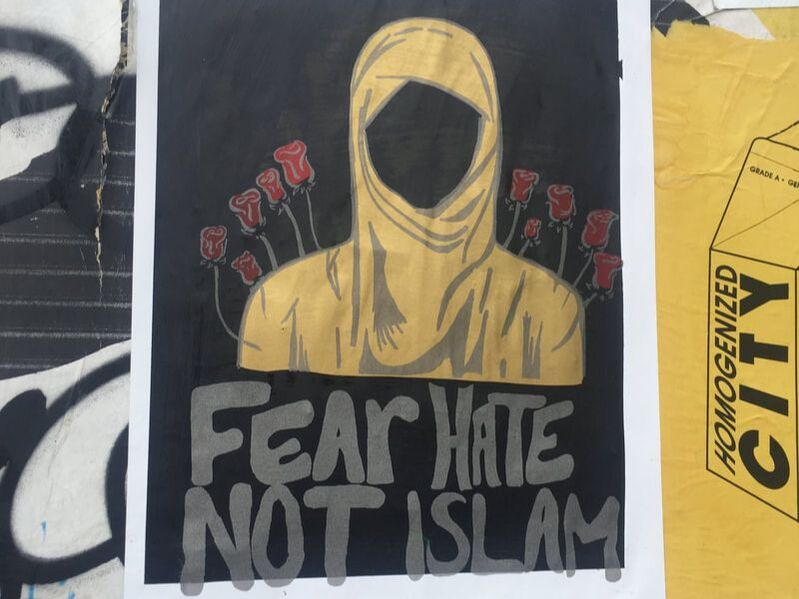|
|
 Photo credit: Jason Tester Guerrilla Futures. CC BY-ND 2.0. https://creativecommons.org/licenses/by-nd/2.0/. Photo credit: Jason Tester Guerrilla Futures. CC BY-ND 2.0. https://creativecommons.org/licenses/by-nd/2.0/.
The narratives presented in British public debates around terrorism have been long rooted in notions of increased presence of Islam in the public square as intuitively resulting in greater risk to the public. The most significant question this raises is who the ‘public’ refers to when discussing issues around securitisation. The recent horror of Christchurch represents something of an inverted scenario with the positioning, and following it we saw a series of Islamophobic attacks on mosques in Birmingham.
The connection between global and local events is significant because it explicitly requires us to engage in a process which, we argue in our Identities article, 'Securing whiteness?: Critical Race Theory (CRT) and the securitization of Muslims in education', is often absent. Our purpose in the article was to explore some of the ways in which Muslim communities are racialised and instrumentalised, rather than protected. Getting to grips with how Muslims have been located as stakeholders in national security in Britain is revealing. A large part of the Prevent counter-terror strategy relies on partnerships with Muslim communities. So in many senses British Muslims are the key stakeholder group in the securitisation process -- so how does it play out for them? How are their interests reflected in exchange for engaging in these partnerships with the state?
The answers to these questions are explored in depth in our article, and are centred around a series of processes of racialisation that have disproportionately impacted on communities across nearly all sectors of social life.
An alliance of political debates and media narratives has forged a reality where it seems like common sense to commandeer Muslim organisations in securitisation strategies as a way of negating ‘risk’ by regulating Islamic influence in the public space. However, thinking about Muslims as stakeholders in any part of this process has been made to seem like a counter-intuitive position. When we consider that the notion of ‘Fundamental British Values’ first appears in Prevent guidelines as a counter-point for identifying extremism, the overlooking of Muslim interests becomes absorbed into a bigger picture within which white British interests hold a far higher value than those of British Muslim citizens. It is within this problematic scenario where we see a disparity in how voices are responded to -- and this occurs across racialised lines. The emphasis on Fundamental British Values clearly connects these disparities to wider issues around national identity and what is meant by Britishness and Englishness. Security is presented as an impartial process which is about the protection of citizens. But for British Muslims the experience is very different. It seems that for them security is less about being protected and more about being instrumentalised. The question to ask amidst all of this is how far securitisation strategies are ‘securing whiteness’, at the expense of British Muslims as stakeholders in security themselves?
Blog post by Damian Breen, Birmingham City University, UK and Nasar Meer, University of Edinburgh, UK
Read the full article: Breen, Damian & Meer, Nasar. Securing whiteness?: Critical Race Theory (CRT) and the securitization of Muslims in education. Identities: Global Studies in Culture and Power. DOI: 10.1080/1070289X.2019.1589981
0 Comments
Your comment will be posted after it is approved.
Leave a Reply. |
|
Explore Identities at tandfonline.com/GIDE |
|
The views and opinions expressed on The Identities Blog are solely those of the original blog post authors, and not of the journal, Taylor & Francis Group or the University of Glasgow.
